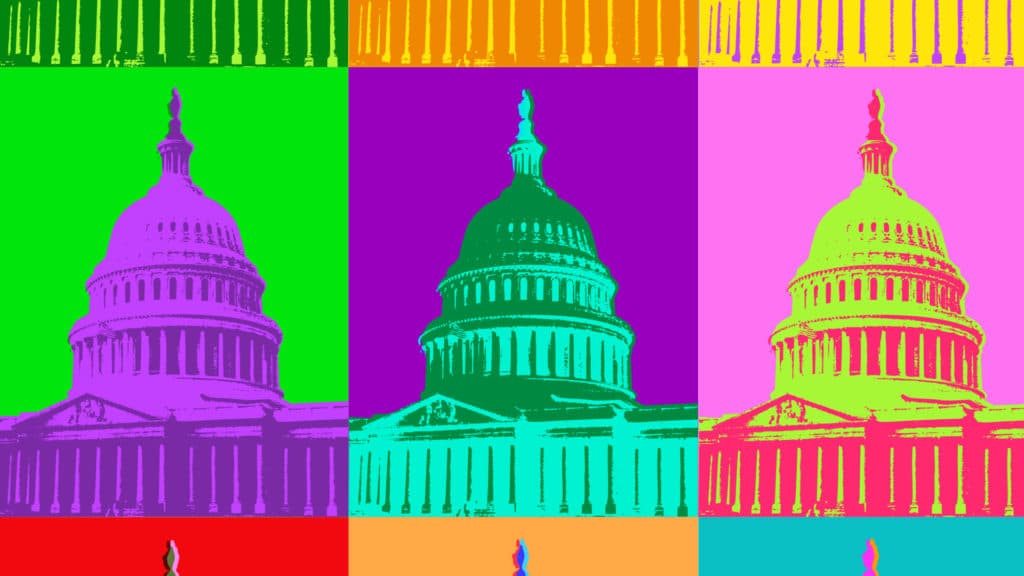Rising to the Occasion

When a government affairs program is running at its best, it can both protect and enhance an association’s reputation. But, no matter how big, influential or game-changing your program is, COVID-19 has been a considerable test to associations and their government affairs teams.
The aggressive nature of the COVID-19 virus has exposed gaps in our healthcare system, our government and our businesses. It has shown where there are breaks in the supply chain and revealed the weaknesses of many for-profit business models.
For the nonprofit community, the need for federal funds has risen to unprecedented levels. While 501(c)(3) associations have proven popular with Congress — and as a result were beneficiaries of federal funds — the wide span of 501s that do the vast amount of educating, accrediting, marketing and meeting planning for the nation’s professionals remain underserved and at risk despite aggressive and continuing advocacy from Association Forum, ASAE and U.S. Travel to name a few.
The time to assess a fire extinguisher is not in the middle of a fire. The same can be said of a government affairs team. The focus now, in this time of crisis, should be how to improve communication and develop a responsive approach to today’s problems without losing sight of the association’s long-standing goals.
From managing lobbying efforts to developing public policy, position papers and external affairs strategy, government affairs professionals fill many roles. This diverse skill set makes them assets in times of crisis.
Currently, organizations are calling on Washington, D.C., state capitals and local governments to secure needed funds and resources to maintain associations in these unprecedented times. This is a highly competitive marketplace where an organization’s access, knowledge and familiarity of a government body can be used to bargain for funds.
How do you get the best out of your government affairs team to make a difference in these times? How do you evaluate your program? Here are some areas to consider:
Stay Accountable
The first place many associations evaluate CEOs and boards is through their strategic plan deliverables. Why not lobbyists? Government affairs teams provide many services to members. They aim to:
- Work with legislators and regulators to make sure the businesses under their purview can function and shape policy that could impact them
- Mitigate taxes and fees
- Craft laws that benefit the industry and defeat laws that could negatively impact the industry
- Seize industry-wide opportunities for growth and collaboration while avoiding threats
- Protect the reputation of the industry and its participants
- Assure the viability of the industry by participation in coalitions, task forces and working groups
While this list is not complete, each of these services can be linked to trackable outcomes. Establish milestones, track issues, and keep a scorecard of legislative wins and losses. Evaluate and survey members on issues. This is a great exercise and an important step to foster support for the association’s priorities and future needs.
One cautionary note: Lobbyists in most jurisdictions (including Illinois) are prohibited from promising anything with regards to the outcome of a bill, regulation or piece of legislation. They can, however, outline the path and tasks by which they will work toward a particular outcome of a bill, regulation or piece of legislation.
Listen
No matter the experience of the government affairs team, these times are unprecedented and call for extra care. Constantly “listening to the whispers” and communicating them to the CEO, board and stakeholders is as critical as ever. A minor incident today can easily become a full-blown crisis tomorrow.
Be Proactive and Innovative
Establishing where you fit in the political environment takes evaluation and honesty. The middle of the road may have been the safest place to drive in the past, but today it is clearly the most dangerous place to be for many organizations as the battle for resources and relevancy ensues. Programs can shine by identifying what innovative ideas they deem worth fighting for to benefit the association. Defense is a primary responsibility for a government affairs team, but by listening to member needs, ideas and programs can be cultivated to produce innovation. Inspire your team to see beyond defense.
When you have developed a plan and a team that listens and is inspired to be proactive and innovative while defending the organizational flank, the goal is to effect change and make an impact. It all starts with communication.
Communicate
Documentation, frequent briefings and meetings with stakeholders are important for establishing this type of communication. Opening lines of dialogue with the CEO and the leadership team allows for transparency, and builds accountability and grassroots buy-in to the position being taken. A government affairs team emboldened with that support has a much greater level of success than one acting independently or reporting back on a need-to-know basis.
An important element of communication is documentation. Now more than ever, with the role of regulators on the ethical behavior of those engaged in politics, the need for detailed documentation should be second nature for government affairs professionals. Examples of what to document include: lists of members of coalitions, member engagement tracking, political contacts and outcomes. The details of this documentation can also serve to write memorandums and briefings. Furthermore, communication that is transparent, direct and, above all, factual, provides the best information for decision-makers.
Communicating outcomes and the value of your services to the association is perhaps the most important role of a government affairs team.
If done correctly, it cannot only build interest in the program but also garner grassroots support when it is needed most. The best programs are ongoing, frequent and molded to specific audiences using all the tools available, such as emails, social media, position papers, issue briefs and scorecards.
No matter what happens next, the government will have a major say in the opening of businesses, how we do business and where we do business. Taking the time to look at the foundation of your government affairs program will help guide your organization through the challenging days ahead.
 Since the declaration of the pandemic in March, the focus of Association Forum’s advocacy has been on expanding relief funding for organizations experiencing hardship — specifically 501(c)(6) nonprofits, a category that includes professional associations.
Since the declaration of the pandemic in March, the focus of Association Forum’s advocacy has been on expanding relief funding for organizations experiencing hardship — specifically 501(c)(6) nonprofits, a category that includes professional associations.
Through hosting town halls with legislators such as U.S. Rep. Raja Krishnamoorthi and advocacy at the federal, state and local levels, president and CEO Michelle Mason said Association Forum will continue to make sure the voices of associations are heard and that lawmakers understand their current plight. “We hope to have future town hall meetings with other legislators to tell the story of associations and why it’s important to get relief funding,” Mason said, emphasizing that she wants lawmakers to understand that associations are also small businesses and employers.
Association Forum has long taken a three-tier advocacy approach: at the federal level, with the American Society of Association Executives (ASAE); at the state level, in collaboration with the Illinois Society of Association Executives (ISAE); and more locally in Cook County and Chicago with retained lobbyist Brian Bernardoni.
Tags
Related Articles
CEO Perspectives on Association Forum’s Governance Professional Practice Statments
Association Forum members have access to professional practice statements. A committee reviews these statements annually....
Work/Life: How Did You Find Your Way to the Association Industry?
Most of us are accidental association professionals. Find out how two women landed in this...
The Importance of Authenticity in New Power Leadership
Seasoned association executive Jim McNeil says that authenticity is the key to New Power Leadership.




